IUPAP EARLY CAREER SCIENTIST AWARDS 2024 IN PARTICLES AND FIELDS

Jennifer Ngadiuba
“For co-design, development and deployment of novel machine learning techniques to address complex elementary particle physics challenges with focus on ultra-fast real-time data analysis on hardware triggers and for model agnostic searches for beyond the Standard Model physics signals at the Large Hadron Collider”.
Jennifer Ngadiuba has been a Wilson Fellow at Fermilab since 2021, focusing on the search for new physics in collider data and enhancing the capabilities of collider experiments for such searches. She graduated from the University of Zurich, where she conducted research at new center-of-mass energies, searching for new heavy resonances decaying to dibosons at the CMS experiment, and validating and utilizing new jet substructure techniques.
Ngadiuba was a research fellow at CERN and later at Caltech, where she continued to develop experimental techniques for diboson resonances and began exploring the potential of Deep Learning, focusing on anomaly detection and fast inference on FPGAs for the CMS trigger system. Since joining Fermilab, she has integrated her work on anomaly detection and AI in trigger systems to identify potential new physics collisions in real-time with the CMS detector.
Ngadiuba’s innovative work in AI applications to CMS physics earned her the U.S. Department of Energy’s AI4HEP award in 2023. In the same year, she was also named a fellow of the AI2050 initiative by Schmidt Sciences, recognizing her significant contributions to the field.

Ian Moult
“For the invention of novel jet substructure observables which have had a direct impact on the collider physics program, and for developing new effective field theory techniques to enable high precision calculations, including in multi-prong kinematics and in subleading soft and collinear limits.”
Ian Moult is an Assistant Professor in the Department of Physics at Yale University. His research focuses on developing new techniques in quantum field theory for improving our understanding of high-energy particle physics experiments. He graduated from the University of British Columbia, and received his Ph.D from MIT. He was then a postdoctoral fellow at LBL/UC Berkeley and SLAC, before joining the Yale Physics Department. Ian was awarded the J. J. and Noriko Sakurai Dissertation Award in Theoretical Particle Physics from the American Physical Society, and the the Wu-Ki Tung Award for Early-Career Research on Quantum Chromodynamics.
IUPAP EARLY CAREER SCIENTIST AWARDS 2022 IN PARTICLES AND FIELDS
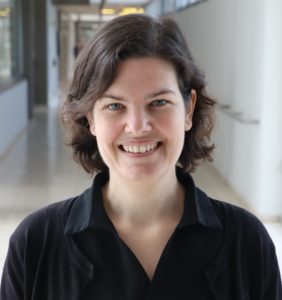
Adi Ashkenazi, Tel Aviv University
“For conducting and leading new experiments to study nuclear-physics effects that take place in neutrino interactions and implements them in simulation. These efforts are crucial for fully utilizing the potential of current and future high-statistics neutrino experiments around the world.”
Dr. Adi Ashkenazi is a senior lecture in the high energy physics department at the Tel Aviv University. Ashkenazi’s research plan is focused on estimating the impact of nuclear effects in neutrino experiments, coordinating an effort to leverage electron scattering data to benchmark models and improve neutrino event generators. Ashkenazi is an active member of MicroBooNE and DUNE, a spokesperson of a dedicated electron scattering experiment at JLAB, and a Monte Carlo developer. Her lab plans to produce a series of novel measurements that will improve current models used for neutrino interaction simulations to support the
needs of the future DUNE experiment for oscillation precision measurements and New Physics searches. Before arriving at her current position, Dr. Ashkenazi was a postdoctoral researcher in Physics at the Massachusetts Institute of Technology and was based at Fermilab. She received her undergraduate degree from the Hebrew University of Jerusalem, a Master and a PhD from Tel Aviv University.
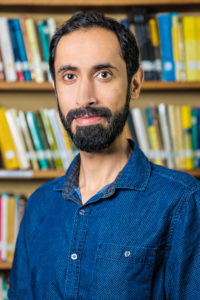
Ahmed Almheiri, New York University in Abu Dhabi
“For substantial and impactful contributions to the understanding of black holes and quantum gravity, specifically related to the information paradox and its connection to quantum information theory and quantum error correction.”
Ahmed Almheiri is an incoming assistant professor of physics at New York University in Abu Dhabi and an affiliate member at the Center for Cosmology and Particle Physics at New York University in New York. His research is on the interface of quantum information and quantum gravity. He had a leading role in revealing this connection by demonstrating that gravity implements a quantum error correcting code, and by addressing the information paradox through calculating the information content of the Hawking radiation emitted by black holes. Ahmed was awarded the 2021 New Horizons in Physics Prize and is the recipient of the Pride of the Emirates medal. He has a B.Sc. from the University of Toronto and a M.Sc. and Ph.D. from the University of California at Santa Barbara, and completed a postdoc at the Stanford Institute for Theoretical Physics at Stanford University, and recently finished a long term membership at the
Institute for Advanced Study in Princeton, NJ.
Photo credit: Dan Komoda, Institute for Advanced Study
IUPAP YOUNG SCIENTIST 2020 PRIZE IN PARTICLES AND FIELDS
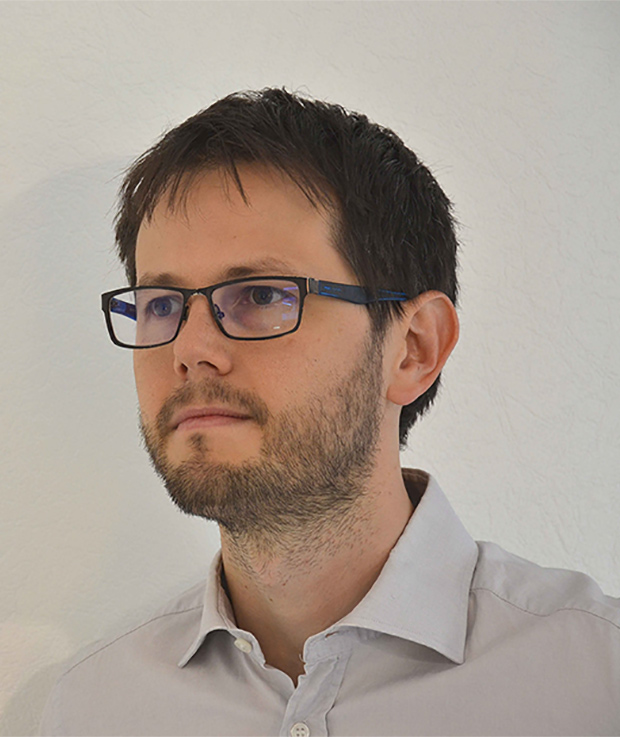
Marco Lucchini, Princeton University
“For his pioneering work in the development of fast crystal sensors for the precision timing of charged particles”
Marco Lucchini is a Post-doctoral Research Associate at Princeton University since 2018. He received his Ph.D at the University of Milano-Biccocca in Italy and worked as a Fellow at CERN from 2015. Since 2017 he started to lead, within the CMS experiment, detector R&D efforts for the novel Mip Timing Detector to tackle some of the challenges of the High Luminosity LHC era. He recently received a Fellini Fellowship Grant from the Italian Institute of Nuclear Physics (INFN) to develop his project (TiMe-LAPseD) on fast timing detectors with crystals and SiPMs.
and:
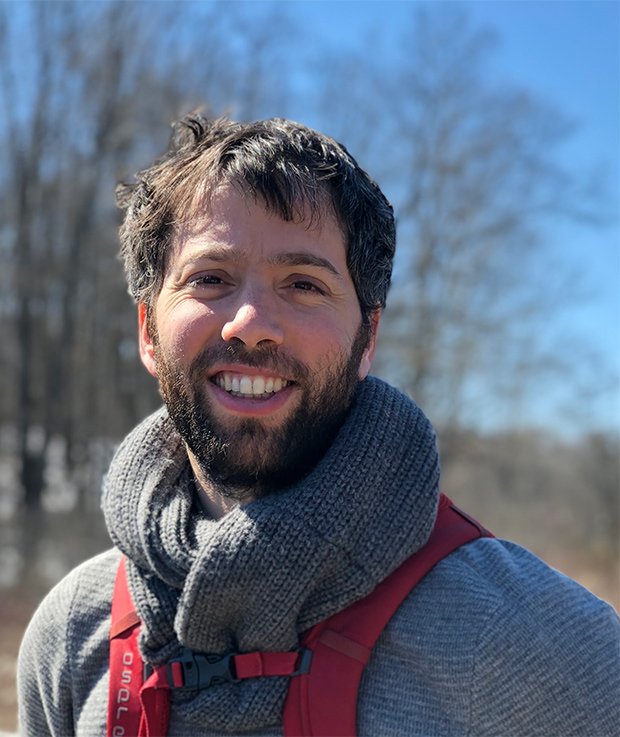
Benjamin Safdi, The University of Michigan
“For groundbreaking theoretical contributions to the search for dark matter, in particular the development of innovative techniques to search for axion dark matter, and to separate dark matter signals from astrophysical backgrounds.”
Dr. Benjamin Safdi is an assistant professor in the Department of Physics at the University of Michigan, Ann Arbor. His research investigates the microscopic nature of dark matter, which is currently unknown. He has helped establish pathways towards potentially discovering some of the most well-motivated dark matter candidates, such as axion dark matter, with novel laboratory experiments and astrophysical probes. In addition, he has developed data-analysis techniques that have helped better understand how to search for signatures of dark matter in complicated astrophysical datasets. Before arriving at Michigan, Dr. Safdi was a Pappalardo Fellow in Physics at the Massachusetts Institute of Technology. He received his undergraduate degree from the University of Colorado at Boulder, a Master of Advanced Study from Cambridge University, as a Churchill Scholar, and his PhD from Princeton University.
IUPAP YOUNG SCIENTIST 2018 PRIZE IN PARTICLES AND FIELDS
C11 Young Scientist Prize 2018
The 2016 IUPAP Young Scientist Prizes for C11: Particles and Fields are:
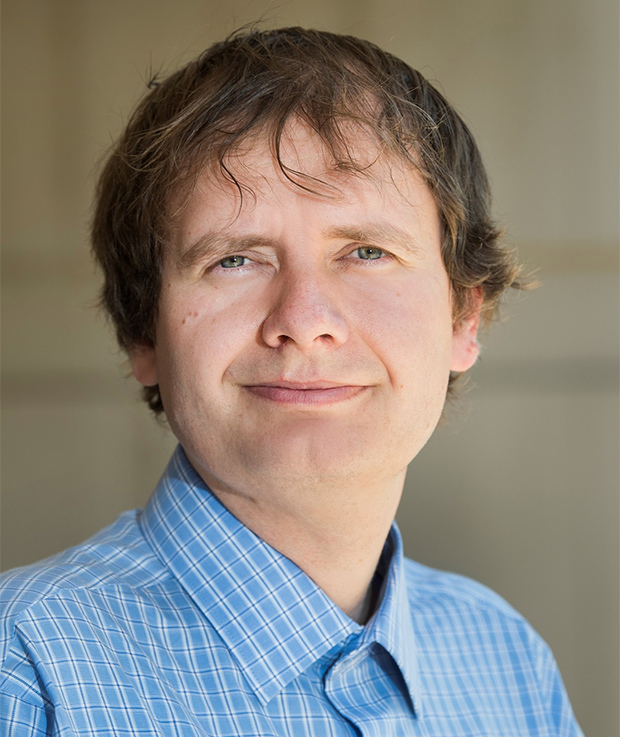
Jaroslav Trnka, University of California, Davis
“For the discovery and exploration of new physical and mathematical principles underlying the dynamics of particle scattering amplitudes in a wide range of theories.”
Jaroslav Trnka is an Assistant Professor at the Department of Physics, University of California, Davis. He graduated from the Charles University in Prague in 2008, and received his Ph.D. from Princeton University in 2013. He was a David Ellen Lee Postdoctoral Fellow at the California Institute of Technology before moving to UC Davis as a founding member of the Center for Quantum Mathematics and Physics (QMAP). His research has been focused on the development of new methods for calculating scattering amplitudes of elementary particles.
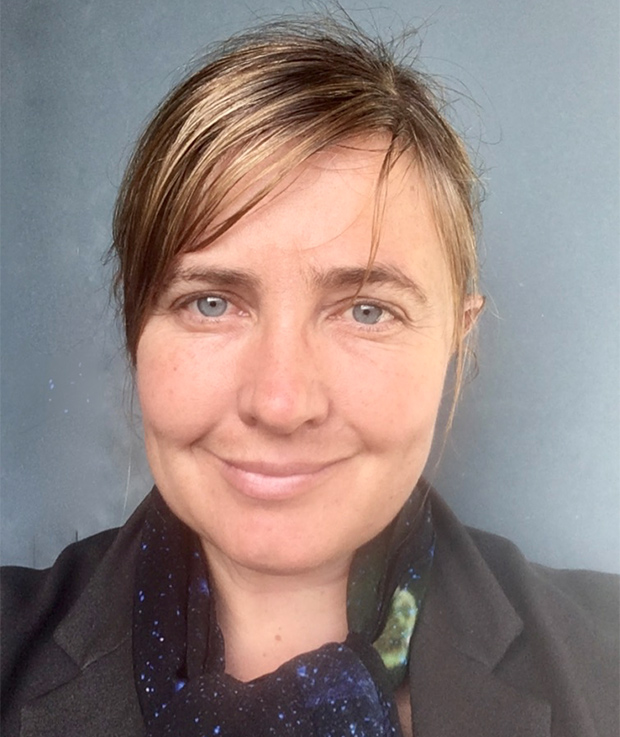
Heather Gray, Lawrence Berkeley National Laboratory
“For her broad and creative contributions as well as leadership in performance and physics analysis in the ATLAS experiment and beyond, culminating in her strong role in the searches and initial measurements of Higgs boson interactions with quarks.”
Heather Gray received her undergraduate education at the University of Cape Town in South Africa. She then obtained her PhD from the California Institute of Technology in Pasadena in the USA in 2011. She worked as a fellow and a research staff scientist at CERN in Switzerland until 2017. She is currently a Divisional Fellow in the physics division at Lawrence Berkeley Laboratory in the USA. She has been a member of the ATLAS collaboration since 2006. Her research program includes studying the coupling of the Higgs to fermions, track reconstruction algorithms and performance, detector simulation and silicon pixel detectors.
IUPAP YOUNG SCIENTIST 2016 PRIZE IN PARTICLES AND FIELDS
C11 Young Scientist Prize 2016
The 2016 IUPAP Young Scientist Prizes for C11: Particles and Fields are:
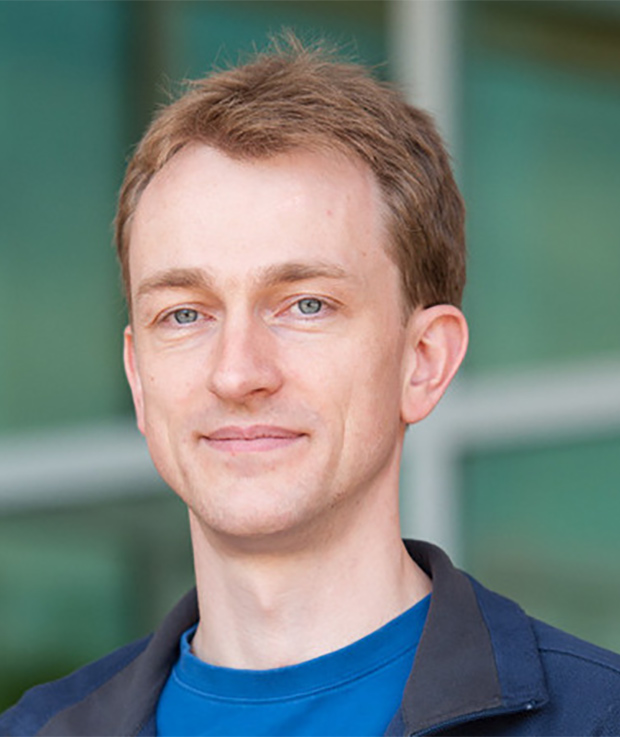
Stefan Hoeche
“For developing high precision Monte Carlo simulations of events at hadronic colliders”
Stefan Hoeche received his Diplom in 2004 from the Dresden University of Technology, and his Ph.D. in 2008 from Durham University. After a postdoctoral appointment at the University of Zurich, he moved to SLAC National Accelerator Laboratory where he is now a Staff Scientist. His professional career has been devoted to providing more accurate simulations of the complex scattering events that take place when two high energy hadrons collide, such as at the Large Hadron Collider. Such simulations are essential to experimentalists for precision measurements of Higgs boson couplings as well as in the search for new physics. He has produced simulations that are accurate to next-to-next-to-leading order in the strong coupling constant for benchmark processes such as Higgs production and W and Z boson production. He has also shown how to construct simulations that are accurate to next-to-leading order, even for events with additional jets within the same sample. He recently developed a novel parton shower formalism which has significantly improved behavior compared with previous ones. His work sets the standards for the precision calculations and simulation tools used at the LHC today.
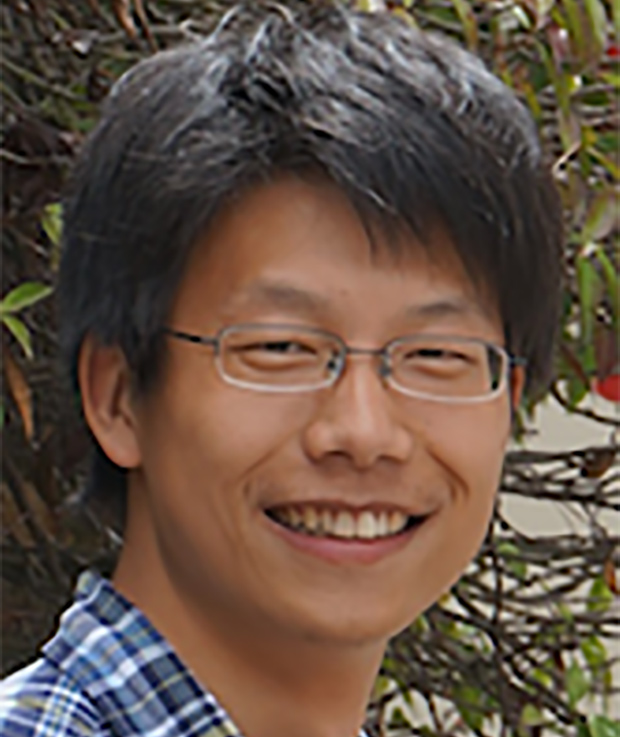
Liangjian Wen
“For his original contributions to the physics of neutrinos, and in particular, to the discovery of the non-zero neutrino mixing angle q13”
Dr. Liangjian Wen is an Associate Research Fellow at the Institute of High Energy Physics (IHEP), Chinese Academy of Sciences, Beijing. He graduated from the University of Science and Technology of China (USTC) in 2005, and received his Ph.D. from IHEP in 2010. He has worked on the measurement of θ13 at Daya Bay experiment, on the search of neutrino-less double beta decays (0nbb) with EXO-200/nEXO, and on the determination of the neutrino mass hierarchy (MH) with JUNO.
Dr. Liangjian Wen made major contributions to the discovery of non-zero θ13 at the Daya Bay reactor neutrino experiment, spanning from the design, construction and commissioning of the detector to the software and data analysis. In particular, he developed a new energy calibration scheme, an energy response model, and novel methods to reject backgrounds and determine systematics, which led to the rapid and precise measurement of θ13 .
C11 Young Scientist Prize 2014
The 2014 IUPAP Young Scientist Prizes for C11: Particles and Fields were awarded during the 37th International Conference on High Energy Physics held from 2-9 July 2014, in Valencia, Spain, to:
- Claude Duhr [University of Durham, UK],”For his outstanding contributions to elementary particle theory, in particular, to formal developments in quantum field theory and their applications to precision calculations in collider phenomenology.”, and
- Kerstin Tackmann [DESY],”For her outstanding contributions to experimental high energy physics, in particular, to the discovery of the Higgs via its gamma gamma decay mode with the ATLAS experiment.”




